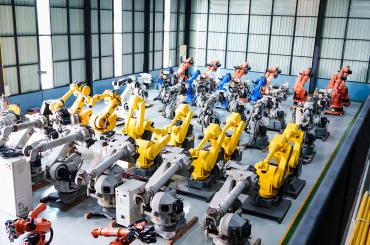
employment
-
Informality: Issue 2
-

How family pressure shapes hiring decisions and productivity in developing countries
Many businesses in developing countries hire workers from family networks. How does redistributive pressure from family influence hiring decisions? And how do these hiring decisions affect business profits?
-

Will robots replace workers? Lessons from China
Robot adoption has skyrocketed in China in the last decade. New research finds that this exposure has led to a decline in employment and wages, influencing workers’ training and retirement decisions. How can developing countries prepare themselves fo...
-

Post-graduate experience in low-skilled jobs: A stepping stone or a barrier?
Access to higher education has increased considerably in low-income countries over the last two decades. Despite this, many graduates find themselves in low-skilled jobs, raising concerns over the effectiveness of their qualifications in shaping thei...
-

How robots have improved worker safety in China
The rise of industrial robots in China has significantly improved worker safety, leading to fewer workplace accidents, injuries, and fatalities.
-

The importance of parenthood for gender inequality around the world
The differential impact of parenthood on the employment of mothers relative to fathers – the child penalty – is a universal phenomenon, but with varying magnitudes. New evidence across 134 countries shows that typically, as countries grow wealthier, ...
-

Economic growth does not guarantee gender equity in work
There are significant disparities across countries in the gender division of work even at similar income levels. Social, institutional, and policy choices play a pivotal role in the variation in gendered labour patterns across countries.
-

The impacts of expanding credit on firm entry and growth in Brazil
Economy-wide expansion of credit for SMEs in Brazil induced entry of more capable firms but did not change employment at the municipal level
-

Can temporary wage incentives increase formal employment? Experimental evidence from Mexico
In Mexico, where formal jobs have low starting salaries which increase rapidly over time, temporary wage subsidies to young high school graduates lead to sustained formal employment gains
